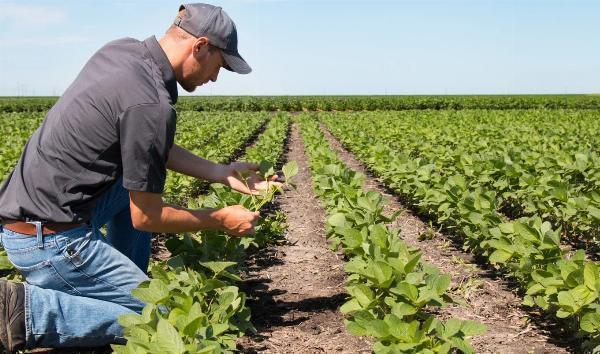 High-Converting Funnels – From Ad Click to Final Sale!
High-Converting Funnels – From Ad Click to Final Sale!
Eligibility Criteria for the Agri-Food Pilot Program - A Comprehensive Guide
Written by Hardik Shah » Updated on: June 17th, 2025

The Agri-Food Pilot Program (AFPP) is a Canadian immigration initiative aimed at addressing labor shortages in the country’s agri-food sector. This program provides a pathway to permanent residency for experienced, non-seasonal workers in specific agri-food industries and occupations. Understanding the eligibility criteria for this program is crucial for individuals looking to make Canada their permanent home. This article will explore the details of the Agri-Food Pilot Program, the specific eligibility criteria, options to meet these criteria, and how to apply.
What is the Agri-Food Pilot Program?
The Agri-Food Pilot Program was launched by the Canadian government in May 2020 as a response to the ongoing labor shortages in the agri-food sector. The program is designed to attract and retain workers in key industries, including meat processing, mushroom production, greenhouse crop production, and livestock farming. These industries are vital to Canada’s economy, but they often struggle to find and retain workers, particularly in rural and remote areas.
The AFPP is a targeted immigration pathway that offers eligible workers the opportunity to apply for permanent residency in Canada. The program is set to run until May 2025, and it has an annual cap of 2,750 principal applicants. Given its focus on essential industries, the AFPP is an attractive option for those with relevant work experience in the agri-food sector.
Eligibility Criteria for the Agri-Food Pilot Program
To qualify for the Agri-Food Pilot Program, applicants must meet several specific eligibility criteria. These criteria are designed to ensure that the program attracts individuals who are well-suited to contribute to Canada’s agri-food sector and who have a genuine intention to settle in the country.
1. Work Experience
Requirement: Applicants must have at least 12 months of full-time, non-seasonal work experience in Canada in one of the eligible industries and occupations. This experience must have been gained within the past three years, and it must have been obtained while working on a valid work permit.
Eligible Industries: The eligible industries for the AFPP include meat product manufacturing, greenhouse, nursery, and floriculture production, mushroom production, and livestock farming.
Eligible Occupations: The eligible occupations include specific National Occupational Classification (NOC) codes such as:
• NOC 6331 (Retail Butchers)
• NOC 9462 (Industrial Butchers)
• NOC 9617 (Food Processing Labourers)
• NOC 8431 (General Farm Workers)
• NOC 8611 (Harvesting Labourers)
• NOC 8252 (Farm Supervisors and Specialized Livestock Workers)
Importance: The work experience requirement ensures that applicants have a solid understanding of the industry and can contribute effectively to Canada’s agri-food sector.
2. Job Offer
Requirement: Applicants must have a valid, full-time, non-seasonal job offer from a Canadian employer in one of the eligible industries. The job offer must be genuine, and the employment must be located outside the province of Quebec.
Job Offer Details: The job offer must specify the occupation, duties, and conditions of employment. It must be consistent with the eligible NOC codes and must be for a position that is permanent and ongoing.
Importance: The job offer requirement ensures that applicants have a secured position in Canada’s agri-food sector, which is crucial for their successful integration and long-term contribution to the industry.
3. Language Proficiency
Requirement: Applicants must demonstrate language proficiency in either English or French. The minimum required Canadian Language Benchmark (CLB) level is 4 in each of the four language abilities: reading, writing, speaking, and listening.
Language Testing: Applicants must take an approved language test, such as the International English Language Testing System (IELTS) for English or the Test d'évaluation de français (TEF) for French. The test results must be submitted as part of the application and must be valid at the time of submission.
Importance: Language proficiency is critical for successful communication and integration in the workplace and community. The language requirement ensures that applicants can effectively interact in their work environment and in broader Canadian society.
4. Education Requirement
Requirement: Applicants must have a Canadian high school diploma or an Educational Credential Assessment (ECA) report that shows that their foreign education is equivalent to a Canadian high school diploma.
Educational Credential Assessment (ECA): If the applicant’s education was completed outside of Canada, they must obtain an ECA report from a designated organization. This report must confirm that the applicant’s foreign education meets the Canadian educational standards.
Importance: The education requirement ensures that applicants have a basic level of education that enables them to perform effectively in their occupation and adapt to life in Canada.
5. Proof of Funds
Requirement: Applicants must demonstrate that they have sufficient funds to support themselves and their family members when they settle in Canada. This requirement is waived if the applicant is already working in Canada under a valid work permit.
Proof of Financial Means: Applicants must provide recent bank statements or other financial documents that show they have enough funds to cover the cost of living in Canada. The amount required varies based on the number of family members accompanying the applicant.
Importance: The proof of funds requirement ensures that applicants have the financial means to support themselves and their dependents during the initial period of settlement in Canada, reducing the risk of financial hardship.
6. Intent to Reside Outside Quebec
Requirement: Applicants must demonstrate their intent to reside in Canada outside the province of Quebec, as the Agri-Food Pilot Program does not apply to Quebec.
Demonstrating Intent: Applicants can demonstrate their intent to reside outside Quebec through their job offer, the location of their employer, and other relevant factors, such as personal or family ties to other provinces.
Importance: The intent to reside outside Quebec requirement ensures that the program addresses labor shortages in the targeted regions of Canada, contributing to the economic needs of those areas.
Options to Meet the Eligibility Criteria
For applicants who do not initially meet all the eligibility criteria, there are several strategies and options available to help them become eligible for the Agri-Food Pilot Program.
1. Gaining Relevant Work Experience
If you do not have the required 12 months of full-time, non-seasonal work experience in Canada, consider pursuing a temporary work permit that allows you to work in one of the eligible industries. By gaining the necessary work experience, you can become eligible to apply for the AFPP in the future.
2. Securing a Valid Job Offer
If you do not have a valid job offer from a Canadian employer, consider networking within the agri-food sector or using job search platforms that specialize in Canadian employment opportunities. Connecting with employers in rural or remote areas, where labor shortages are more acute, can increase your chances of securing a job offer.
3. Improving Language Proficiency
If your language proficiency does not meet the minimum CLB level 4 requirement, consider enrolling in language courses or using language learning resources to improve your skills. Achieving the required language proficiency level will not only make you eligible for the AFPP but also enhance your ability to succeed in Canada.
4. Obtaining an Educational Credential Assessment (ECA)
If your education was completed outside of Canada, ensure that you obtain an ECA report from a designated organization. This report is essential for demonstrating that your education meets Canadian standards and is equivalent to a high school diploma.
5. Demonstrating Proof of Funds
If you do not currently have sufficient funds to meet the proof of funds requirement, consider saving money over time or exploring financial planning options. Ensuring that you have enough funds to support your settlement in Canada is a critical step in the application process.
How to Apply for the Agri-Food Pilot Program
Once you have determined that you meet all the eligibility criteria for the Agri-Food Pilot Program, the next step is to prepare and submit your application. Here’s a step-by-step guide on how to apply:
1. Gather Necessary Documents
Before starting your application, gather all the required documents, including proof of work experience, a valid job offer, language test results, educational credentials, proof of funds, and any other supporting documents.
2. Complete the Application Forms
You will need to complete several application forms, including the Generic Application Form for Canada (IMM 0008), Schedule A – Background/Declaration (IMM 5669), and the Additional Family Information (IMM 5406), among others. These forms can be downloaded from the official Immigration, Refugees, and Citizenship Canada (IRCC) website.
3. Pay the Application Fees
You will need to pay the required application fees, which include the processing fee, the right of permanent residence fee, and any additional fees for dependents or biometrics. Payment can be made online through the IRCC website.
4. Submit Your Application
Once you have completed the forms and gathered all the necessary documents, you can submit your application either online or by mail, depending on the instructions provided by IRCC. Ensure that you include all required documents and that your application is complete to avoid delays.
5. Wait for Processing
After submitting your application, you will receive a confirmation of receipt from IRCC. The processing time for the Agri-Food Pilot Program can vary, so be prepared to wait for several months for a decision.
6. Prepare for Your Move to Canada
If your application is approved, you will receive instructions on how to finalize your permanent residency status. Once you have completed all the necessary steps, you can prepare for your move to Canada and begin your new life in the agri-food sector.
The Agri-Food Pilot Program offers a valuable opportunity for workers in the agri-food sector to gain permanent residency in Canada. By understanding and meeting the eligibility criteria, and following the application process carefully, you can take advantage of this pathway to a stable and prosperous future in Canada. With the right preparation and commitment, the Agri-Food Pilot Program can be your gateway to a new beginning in one of Canada’s most essential industries.
Note: IndiBlogHub features both user-submitted and editorial content. We do not verify third-party contributions. Read our Disclaimer and Privacy Policyfor details.
Copyright © 2019-2025 IndiBlogHub.com. All rights reserved. Hosted on DigitalOcean for fast, reliable performance.













